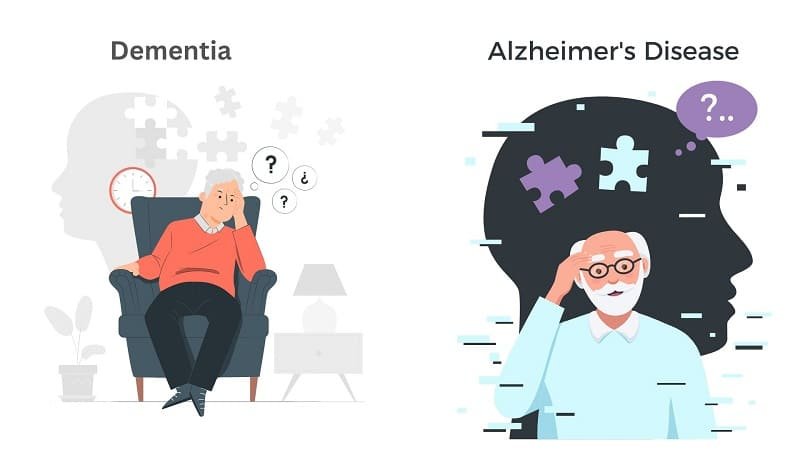Introduction -
In the ever-evolving landscape of medical science, breakthroughs that offer hope for conditions like Alzheimer’s disease are particularly significant. In 2023, the healthcare community witnessed a groundbreaking achievement — an “Alzheimer’s cure breakthrough.” This article delves into the recent strides made in Alzheimer’s research, focusing on the notable developments, innovative treatments, and the promising future that lies ahead.
Understanding Alzheimer's Disease:
Before delving into the breakthrough, it’s crucial to comprehend the complexities of Alzheimer’s disease. This neurodegenerative condition, affecting millions worldwide, is characterized by progressive memory loss, cognitive decline, and the accumulation of abnormal proteins in the brain. Current treatments, such as cholinesterase inhibitors and memantine, alleviate symptoms temporarily but do not address the root cause or halt the relentless progression of the disease.
The Rise of Lecanemab (Leqembi):
In 2023, a beacon of hope emerged with the approval of Lecanemab, marketed under the name Leqembi, by the US Food and Drug Administration (FDA). This monumental decision marked a paradigm shift in Alzheimer’s treatment, as Leqembi became the first medication designed to tackle the disease at its core.
Lecanemab: A Game-Changer
Lecanemab operates on the principle of targeting beta-amyloid plaques, the hallmark of Alzheimer’s disease. These plaques, composed of beta-amyloid proteins, disrupt cell functioning and memory. The FDA’s approval of Leqembi was grounded in the robust results from the Clarity-AD clinical trial, where the drug showcased its prowess in removing amyloid and tau proteins from the brains of individuals with early Alzheimer’s disease.
The Clarity-AD Clinical Trial:
The groundbreaking Clarity-AD trial unveiled the potential of Lecanemab in slowing cognitive decline. Participants receiving the drug experienced a remarkable 27% deceleration in the decline of thinking and memory skills. Moreover, the drug exhibited a staggering 56% reduction in the decline in the quality of life for individuals grappling with early Alzheimer’s disease.
Mode of Administration:
Administered through intravenous infusion every two weeks, Leqembi has proven to be a well-tolerated treatment. However, it’s essential to note potential side effects, including infusion-related reactions and, more notably, brain swelling or bleeds. The FDA recommends a brain MRI before initiating treatment and continuous monitoring during the course.
Considerations for Patients:
Individuals carrying a specific genetic variant, APOE e4, may face a higher risk of serious complications. Therefore, genetic testing is recommended before embarking on Leqembi treatment. Those on blood thinners or with other risk factors for brain bleeding should consult their healthcare professionals, as these factors may increase the risk of bleeds in the brain.
Beyond Leqembi: Exploring Other Avenues
While Leqembi represents a remarkable breakthrough, researchers are tirelessly exploring additional strategies to combat Alzheimer’s disease comprehensively.
Donanemab:
Similar to Leqembi, Donanemab targets both amyloid plaques and tau proteins. Clinical trials have indicated its efficacy in slowing declines in thinking and functioning among individuals with early Alzheimer’s disease.
Aducanumab (Aduhelm):
Despite receiving approval, Aducanumab’s effectiveness has yielded mixed results in studies. Its usage remains limited, and insurance coverage is constrained.
Saracatinib:
Originally developed as a cancer treatment, Saracatinib is now being tested for its potential in Alzheimer’s disease. Early studies in mice have shown promise, indicating a reversal of some memory loss.
Tau Aggregation Inhibitors and Tau Vaccines:
Researchers are actively exploring methods to prevent tau proteins from forming tangles, a common occurrence in Alzheimer’s-affected brains.
A Multifaceted Approach: Future Landscape of Alzheimer's Treatment
Experts envision a future where Alzheimer’s treatment involves a combination of medicines, akin to approaches for cancer or HIV/AIDS. The multifaceted strategy aims to address various aspects of the disease, offering a more comprehensive and effective solution.
Targeting Beta-Amyloid:
- Monoclonal antibodies continue to be a focus, aiming to prevent beta-amyloid clumping and removing existing plaques from the brain.
Production Blockers:
- Experimental medicines targeting beta- and gamma-secretase enzymes, involved in beta-amyloid formation, are under scrutiny. Recent studies, however, have tempered enthusiasm due to side effects.
Tau Tangles:
- Ongoing research explores tau aggregation inhibitors and tau vaccines to prevent the formation of tangles and preserve vital brain cell transport systems.
Inflammation Reduction:
- Medicines like Sargramostim (Leukine) are being investigated for their potential to stimulate the immune system and protect the brain from harmful proteins.
Insulin Resistance:
- Studies are delving into the relationship between insulin and Alzheimer’s, although an insulin nasal spray has been deemed ineffective in slowing disease progression.
Heart-Head Connection:
- Recognizing the link between heart health and Alzheimer’s, research explores the benefits of heart disease medications and seeks new targets for Alzheimer’s treatment.
Hormones:
- The relationship between estrogen, cognitive function, and Alzheimer’s is under scrutiny, though studies on hormone replacement therapy have yielded mixed results.
Conclusion: A Ray of Hope
The “Alzheimer’s cure breakthrough” of 2023, epitomized by the approval of Leqembi, marks a transformative chapter in the fight against cognitive decline. While challenges and uncertainties persist, the relentless pursuit of effective treatments and a deeper understanding of Alzheimer’s disease instill hope for a future where this debilitating condition can be not only managed but potentially cured. As research continues to unfold, the collaborative efforts of the scientific community promise a brighter tomorrow for those affected by Alzheimer’s.
Faq Related to "Alzheimer’s Cure Breakthrough 2023"
The Alzheimer’s cure breakthrough in 2023 represents a pivotal moment in the field of neurodegenerative diseases. It marks the approval of Lecanemab (Leqembi) by the US FDA, a medication designed to target the underlying causes of Alzheimer’s disease, offering new hope for patients with early-stage Alzheimer’s.
Lecanemab is a groundbreaking medication marketed as Leqembi. It operates by targeting beta-amyloid plaques, a characteristic sign of Alzheimer’s disease. Administered through intravenous infusion every two weeks, Lecanemab has shown promise in slowing cognitive decline by preventing the clumping of amyloid plaques in the brain.
he Clarity-AD clinical trial demonstrated that Lecanemab successfully removed both amyloid and tau proteins from the brains of individuals with early Alzheimer’s disease. Participants experienced a 27% deceleration in the decline of thinking and memory skills, along with a remarkable 56% reduction in the decline in the quality of life.
Lecanemab shares similarities with Aducanumab and Donanemab as it targets beta-amyloid plaques. However, each medication may have unique characteristics and effectiveness. Aducanumab’s usage is limited due to mixed study results, while Donanemab has shown promise in slowing declines in thinking and functioning.
Yes, there are potential side effects of Lecanemab, including infusion-related reactions, fever, flu-like symptoms, and nausea. Notably, there is a risk of brain swelling or bleeds, with rare instances of serious complications leading to seizures or even death. Individuals with a certain gene (APOE e4) may be at a higher risk of these complications.
Yes, genetic testing is recommended before starting Lecanemab, especially for individuals carrying the APOE e4 gene variant. This testing helps identify those at a higher risk of serious complications and allows healthcare professionals to tailor the treatment plan accordingly.
The landscape of Alzheimer’s treatment is dynamic. Besides Lecanemab, researchers are exploring various strategies, including targeting tau tangles, reducing inflammation, examining insulin resistance, studying the heart-head connection, and investigating potential hormonal influences. These efforts aim to provide a comprehensive approach to Alzheimer’s treatment.
Staying informed involves regularly checking reputable sources such as official healthcare websites, scientific journals, and news updates from trusted medical organizations. Consultation with healthcare professionals and participation in clinical trials can also provide valuable insights into the latest advancements in Alzheimer’s research.
With the FDA approval in 2023, Lecanemab, marketed as Leqembi, is now available for individuals with mild Alzheimer’s disease and mild cognitive impairment due to Alzheimer’s in the United States. Widespread availability will depend on factors such as production scale-up, distribution logistics, and further regulatory approvals in other regions.
The Alzheimer’s cure breakthrough of 2023 serves as a catalyst for ongoing research and treatment development. It sheds light on the potential of targeting beta-amyloid plaques and encourages a multifaceted approach. The collaborative efforts of the scientific community, combined with data sharing initiatives, aim to accelerate the discovery of more effective therapies for Alzheimer’s disease.











